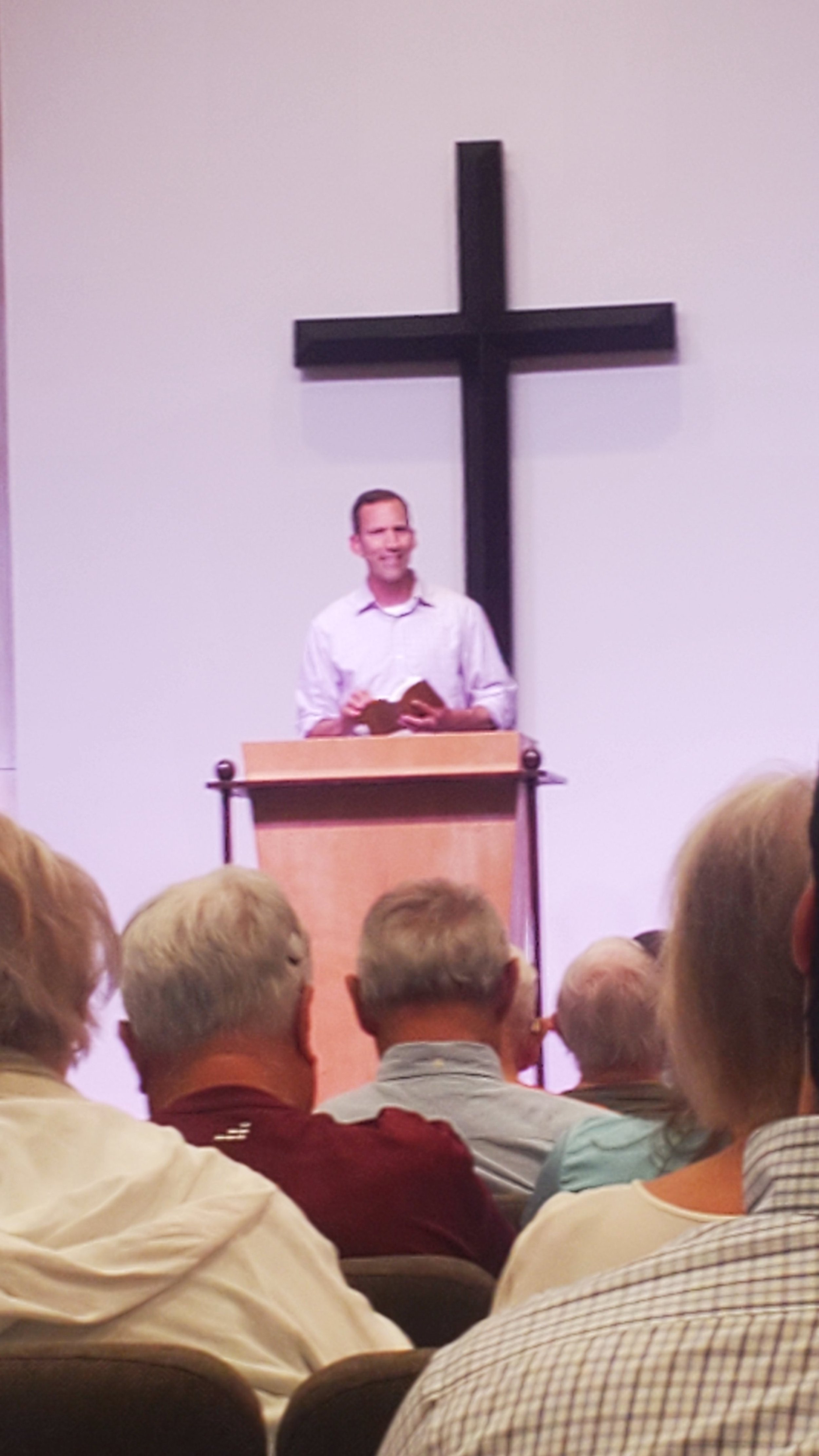Those who know me (Joe) know that I talk a lot about meditation. This is not because I’m new age or trendy. Quite the opposite. I’m a proponent of meditation because, like JC Ryle, I stick to “the old paths”. Meditation is the porridge of the Christian life. It’s a tried and true meal that has sustained the faith, peace, and joy of Christians over many, many generations.
Now, I like to rehearse the same ideas often because, if you’re like me, it takes more than one lesson to drive home a point. With this in mind, what I want to do here is to ask a question, “What is meditation?” The term confuses a lot of Christians, especially evangelicals. Somehow we manage to get through a lot of years, even decades, in churches without having a clear idea of what Christian meditation is. This is sad. After all, we can’t put into practice what we don’t understand.
Here is a somewhat clunky definition of meditation. I’ve adapted it from the great Puritan, Richard Baxter. Meditation is the solemn acting of all the powers of the soul in the consideration of dimensions of reality that are accessible to faith, not sight. Wow. That’s a mouthful! Let’s break it down.
First, meditation involves all the powers of the soul. What this means is that meditation is not merely an act of the intellect. In addition, it involves the will, the affections, memory, even imagination. In the same way that an exercise like rowing activates all the major muscle groups of the body, so meditation activates every tissue and fibre of the soul. Think about what is required to meditate, for example, on the ascended glory of Christ? The memory must recall familiar truths and present them to the intellect; the intellect must then consider the truth in all of its particularity until goodness and beauty begin to shine; the will must subsequently delight in the excellence of Christ and submit to his majesty; and finally, the affections of delight, joy, and hope must cling to Christ - not as a mere object of thought - but as an object of worship. Baxter says, “Meditation turns truths received and remembered into warm affection, firm resolution, and holy conversation”. It’s not just a part of the soul engaged in the process, but all of it.
Second, meditation is a solemn act. If spiritual reality was trivial, then our attitude when thinking about it could be casual and frivolous. There is no need to be soberminded when reflecting on a favourite TV show or upcoming holiday. But when the subject matter to be contemplated is of the order of heaven, holiness, resurrection, lordship, and Pure Spirit, then a different mindset is needed. This is especially the case when the truths being contemplated are not static, but dynamic - indeed living! Think of the attitude of Queen Esther as she awaited the golden scepter being extended before approaching the Great King. If such reverence was required for drawing near to earthly majesty, what must be the condition of a heart before lifting its eyes to divine glory? Or reflect on what it would have been like to be invited into the company of Peter, James, and John as they ascended the Mount of Transfiguration? Walking up the hill would not have been an opportune time for chit chat and banter. The atmosphere would have been heavy as they approached the crest of revelation.
Third, meditation is considering the deepest and most ravishing dimensions of reality. Baxter says, “That which will make us most happy when we possess it, will make us most joyful when we meditate upon it”. Stop and think about this statement and you will find it to be true. There are all kinds of things we can contemplate. These range from good health, to a nice meal, to seeing an old friend. It is the degree of joy experienced when enjoying a good that determines the degree of joy experienced when meditating on a good. This explains why meditating on spiritual things brings the greatest delights and comforts to a Christian. What can compare to the prospects of seeing Christ, of being resurrected, of attending the wedding supper of the Lamb, or of being eternally invigorated in the light of divine holiness? These are not just “goods”. They are the summum bonum. They encompass what we mean by “eternal life”.
Now, I don’t need to belabor the point that much of such blessedness is inaccessible in our present condition. One hymnwriter says, “Jesus, these eyes have never seen/that radiant form of thine”. So it is in the vale of years. However, what we cannot yet enjoy experientially, we can enjoy meditatively. By faith, we are able to go beyond our senses and delight in truths that are real even if they are transcendent. This is the joy of meditation. Meditation is not speculation; it is anticipation. To meditate is like picking up a book about a foreign land and looking intently at the photographs and reading the pages. The photographs and narrative cannot physically change our location so that we can hear the noise of distant streets and taste the foods of unexplored lands. But, the more the book is studied, the more the heart will be thrilled by anticipation. What cannot yet be touched and tasted can indeed be imagined.
The application should be plain. Meditation is putting the heart in contact with dimensions of reality that are real though unseen. And the more we invest in the practice of meditation, the more excited we will become about “an inheritance that is imperishable, undefiled, and unfading, kept in heaven” for us (I Pet. 1:4).
Do you want more joy, peace, and hope? Then meditate.
“When death these mortal eyes shall seal,
And still this throbbing heart,
The rending veil shall thee reveal,
All Glorious as thou art.”




